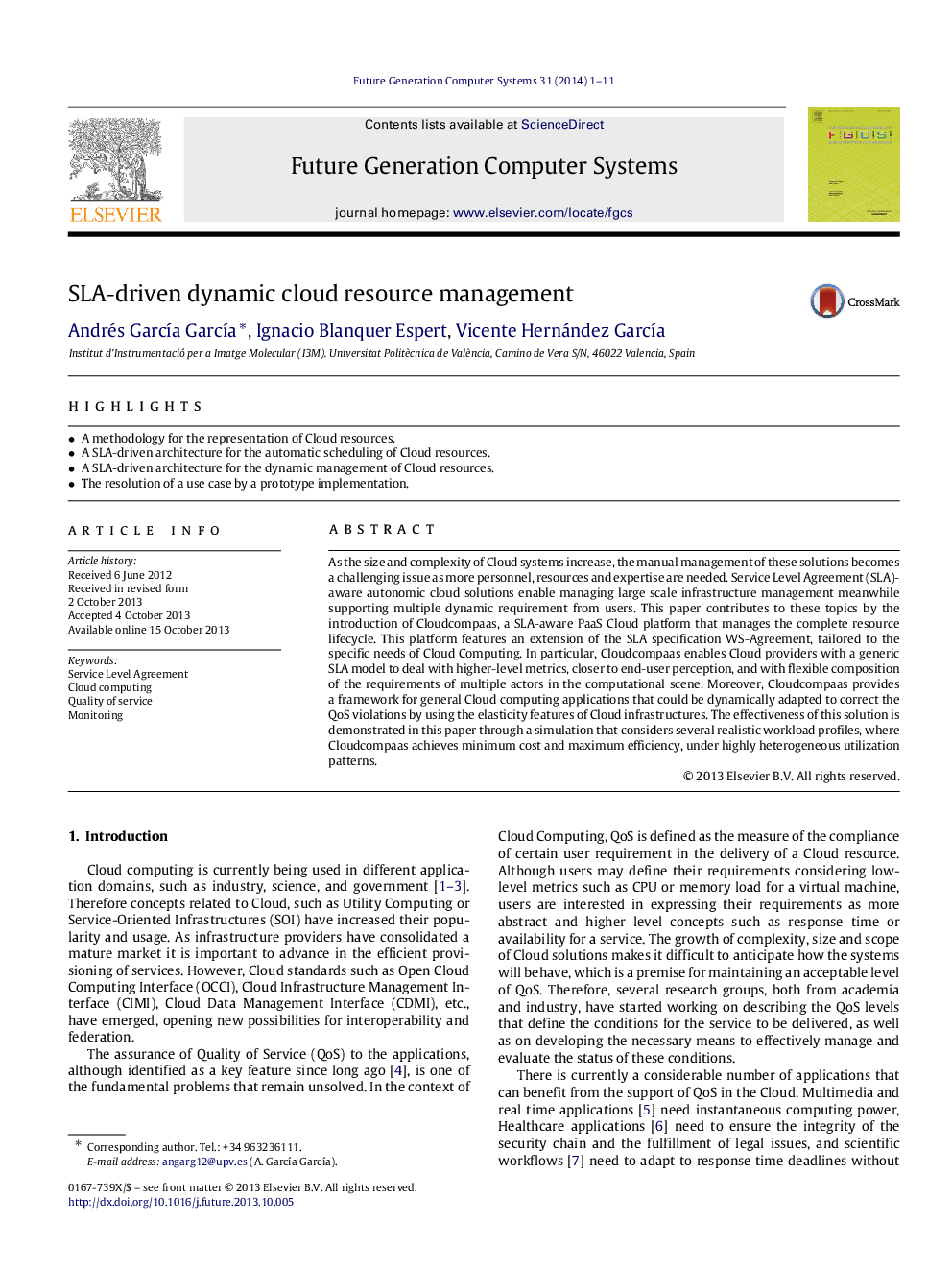| Article ID | Journal | Published Year | Pages | File Type |
|---|---|---|---|---|
| 425671 | Future Generation Computer Systems | 2014 | 11 Pages |
•A methodology for the representation of Cloud resources.•A SLA-driven architecture for the automatic scheduling of Cloud resources.•A SLA-driven architecture for the dynamic management of Cloud resources.•The resolution of a use case by a prototype implementation.
As the size and complexity of Cloud systems increase, the manual management of these solutions becomes a challenging issue as more personnel, resources and expertise are needed. Service Level Agreement (SLA)-aware autonomic cloud solutions enable managing large scale infrastructure management meanwhile supporting multiple dynamic requirement from users. This paper contributes to these topics by the introduction of Cloudcompaas, a SLA-aware PaaS Cloud platform that manages the complete resource lifecycle. This platform features an extension of the SLA specification WS-Agreement, tailored to the specific needs of Cloud Computing. In particular, Cloudcompaas enables Cloud providers with a generic SLA model to deal with higher-level metrics, closer to end-user perception, and with flexible composition of the requirements of multiple actors in the computational scene. Moreover, Cloudcompaas provides a framework for general Cloud computing applications that could be dynamically adapted to correct the QoS violations by using the elasticity features of Cloud infrastructures. The effectiveness of this solution is demonstrated in this paper through a simulation that considers several realistic workload profiles, where Cloudcompaas achieves minimum cost and maximum efficiency, under highly heterogeneous utilization patterns.
